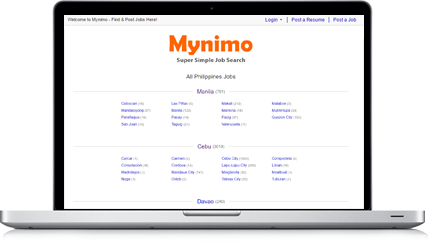Pay Guidelines for the Holy Week Holidays
The days of Holy Week, specifically from Maundy Thursday to Black Saturday, are declared as legal holidays. However, there are some companies which require employees to report for duty on such days.
If you are going to be working, here’s a look at its mandated rules of payment:
People working on April 13 and 14 (Regular Holidays) are entitled to:
Double of the daily salary for the first 8 hours.
- Additional 30% of the hourly rate for the day for hours beyond 8.
- Additional 30% of the double pay for the day if day falls on worker’s rest day.
- Additional 30% of the hourly rate for that day for overtime work on worker’s rest day.
People working on April 15 (Special Non-Working Day) are entitled to:
- Additional 30% of the daily rate for the first 8 hours of work.
- Additional 30% of the hourly rate for the day for hours beyond 8.
- Additional 50% of the daily rate if day falls on worker’s rest day.
- Additional 30% of the hourly rate for that day for overtime work on worker’s rest day.
Whether on duty or not though, the Lenten season is a time for Christians to pause and reflect on their spiritual life. The long holiday also gives everyone the opportunity take a break from their busy work lives, while bonding and reconnecting with family and friends.
About Holy Week
Lent is a Christian religious observance that usually lasts for 40 days, in commemoration of the forty days Jesus spent fasting on the desert before beginning his Public Ministry.
The purpose of Lent is to prepare the believer through prayer, penance, repentance, mortifying the flesh, almsgiving, and self-denial. Fasting and giving up on certain luxuries is done to replicate Jesus’ sacrifice in His journey through the desert.
As a predominantly Catholic country, Philippines follows solemn religious practices in honor of Lent and declares Thursdays to Saturdays of the Holy Week as National Holidays.
- Palm Sunday
The Sunday before Easter Sunday is Palm Sunday. Commemorating Jesus’ triumphal entry into Jerusalem, it was noted by the crowds present who shouted praises and waved palm branches. Mass goers in the Philippines bring lukay, palaspas or palm leaves to be blessed by the Priest.
- Monday to Wednesday
Monday observes the anointing of Jesus at Bethany, Tuesday observes Jesus’ prediction of his own death and Wednesday observes Judas arranging his betrayal of Jesus with the high priests.
- Maundy Thursday
Maundy Thursday commemorates the Last Supper where Jesus instituted the rite of Holy Communion. Jesus also made predictions of Peter’s betrayal and of His death and resurrection. Filipinos observe this event by visiting several Churches and pray the Stations of Cross.
- Good Friday
The crucifixion of Jesus and his subsequent death is observed on Good Friday. As a form of penance, some devotees reenact the crucifixion by willingly allowing themselves to be nailed to the cross. The most common practice however is the observance of silence by turning off electronics and limiting conversations.
- Holy Saturday
On Holy Saturday, the Gospel accounts that Jesus was buried in a cave tomb after his crucifixion. Businesses, malls and stores in the Philippines proceed to operate on regular hours by this time.
- Easter Sunday
Easter Sunday marks the Resurrection of Jesus. Christians rejoice on this culmination of the Holy Week. In the Philippines, the day is greeted early with a dawn mass called Salubong in tagalog and Sugat Kabanhawan in bisaya, both translate to Welcoming in English.
For a complete list of Philippine holidays this 2017, click here.


